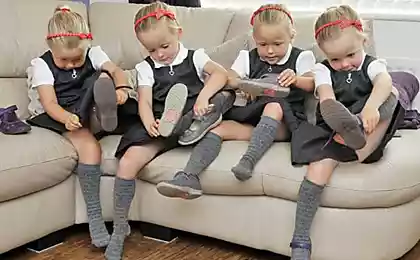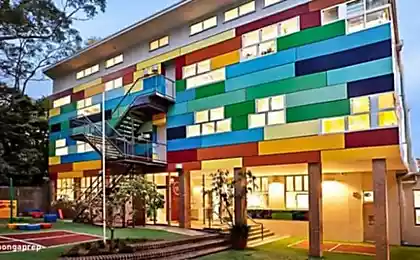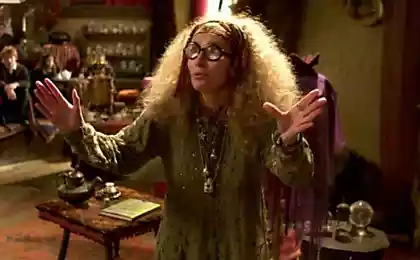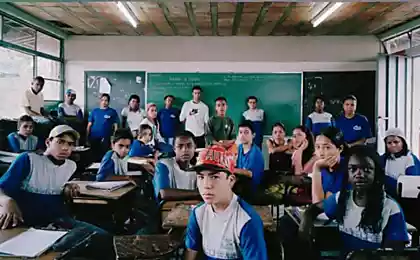172
Why modern teachers do not want to teach children and shift responsibility to parents
To find out, What teachers work in schoolParents must attend the school meeting. Not one. You can even personally meet a teacher who teaches the subject you are interested in. This way you can find out what kind of person teaches your child and whether you can rely on him. Or use the services of a tutor.

Now is the time that some parents prefer to leave their children at home for distance learning. Of course, there are parent chats where you can discuss the issue with other parents and teachers. Except that's all wrong. It may happen that the teacher just shirks from work, and this will definitely lead the child to difficulties with learning in the future.
First, consider the type of teacher who does everything according to conscience. These people are professionals in their field. During the time they spent in school, they have accumulated personal and professional experience. And therefore in the bins there is always the right method, tests with the right options and so on.
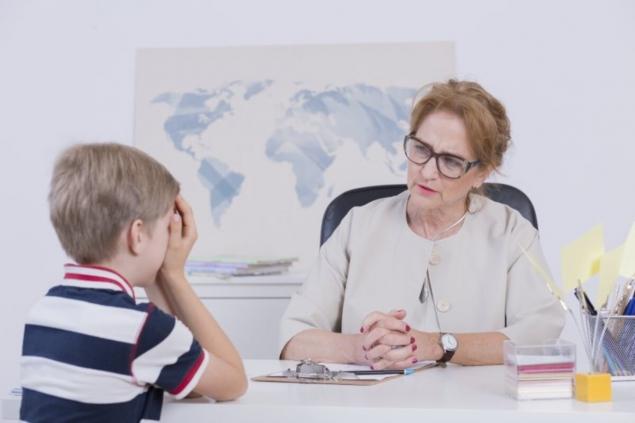
What a plus. This type of teacher? As a parent, you can always be sure that your child will get the full lesson. Even such “classical” teachers do not disdain to call parents on the phone in person and tell the news to the parents of the child in the event of an incident. These are good old teachers who taught you.
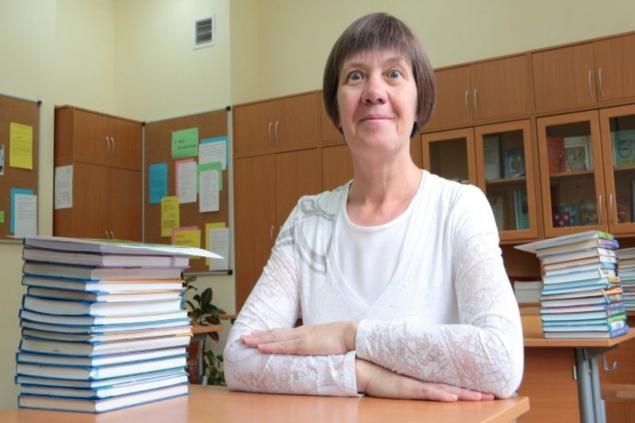
Cons Unfortunately, such teachers also have. And a lot. The first is the inability to immediately navigate new trends, whether it is a parent chat in the Internet messenger or a change in the curriculum, where the material should be presented differently.

Second, old school teachers are used to having absolute authority among students. For example, the silence in the classroom, in their opinion, should be grave. And the student has no right to argue with the teacher, even if the teacher is wrong. It just so happens that in modern schools there is a tendency to build a dialogue with students. In other words, they are given more rights and opportunities to express themselves. For “classical” teachers, this is difficult.
Under the second type we would like to consider teachers of the so-called "new school". These are mostly recent graduates of pedagogical universities. Young, energetic and full of strength, they will readily take up the newest and most “breakthrough” program, as long as it differs from the standard and stereotyped.
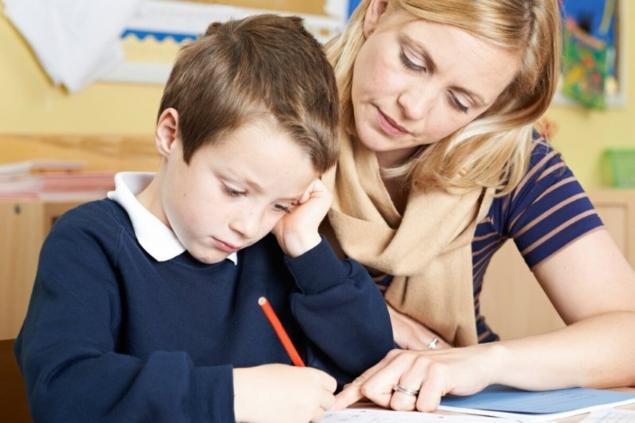
PlusesOf course, there is such an approach: if you are a young parent, you can control the educational process of your child, even without coming to school, because in modern gadgets you understand. In addition, there is really nothing wrong with modern programs. Children will learn the basics, and by secondary school it would be better to focus on profile subjects. It is time to choose who grows up: an artist or a mathematician.

But minuses are enoughFor example, an unspoken rule comes into vogue, saying that children should be given the opportunity to study with their parents. And it's basically a simple shift of work and responsibility from the teacher to the parent. After work, you will have to do your homework. At first, it’s even fun: make men out of acorns or paint a picture.

But then it becomes a burden, who wants to disassemble non-standard equations and integrals, when after work you need to have time to cook something and rest for tomorrow’s work day? And the teacher told us to do it together, because if I did it myself, I'd just write it off the Internet. So it's not that simple in these new-fangled school programs.
Anyway, different teaching approaches have their pros and cons. It all depends on a particular person, his skills, experience and inner desire to work. As a parent, you can choose “old school”, but you will always remember all the disadvantages of this approach that you had.

The new approach is interesting for its freshness and unusualness, but it is not ideal. In any case, you need to spend time with the child. Walk and study. But at some point, he has to start doing everything on his own, and this is where it can get harder. Anyway, it's up to you. Good luck!

Now is the time that some parents prefer to leave their children at home for distance learning. Of course, there are parent chats where you can discuss the issue with other parents and teachers. Except that's all wrong. It may happen that the teacher just shirks from work, and this will definitely lead the child to difficulties with learning in the future.
First, consider the type of teacher who does everything according to conscience. These people are professionals in their field. During the time they spent in school, they have accumulated personal and professional experience. And therefore in the bins there is always the right method, tests with the right options and so on.

What a plus. This type of teacher? As a parent, you can always be sure that your child will get the full lesson. Even such “classical” teachers do not disdain to call parents on the phone in person and tell the news to the parents of the child in the event of an incident. These are good old teachers who taught you.

Cons Unfortunately, such teachers also have. And a lot. The first is the inability to immediately navigate new trends, whether it is a parent chat in the Internet messenger or a change in the curriculum, where the material should be presented differently.

Second, old school teachers are used to having absolute authority among students. For example, the silence in the classroom, in their opinion, should be grave. And the student has no right to argue with the teacher, even if the teacher is wrong. It just so happens that in modern schools there is a tendency to build a dialogue with students. In other words, they are given more rights and opportunities to express themselves. For “classical” teachers, this is difficult.
Under the second type we would like to consider teachers of the so-called "new school". These are mostly recent graduates of pedagogical universities. Young, energetic and full of strength, they will readily take up the newest and most “breakthrough” program, as long as it differs from the standard and stereotyped.

PlusesOf course, there is such an approach: if you are a young parent, you can control the educational process of your child, even without coming to school, because in modern gadgets you understand. In addition, there is really nothing wrong with modern programs. Children will learn the basics, and by secondary school it would be better to focus on profile subjects. It is time to choose who grows up: an artist or a mathematician.

But minuses are enoughFor example, an unspoken rule comes into vogue, saying that children should be given the opportunity to study with their parents. And it's basically a simple shift of work and responsibility from the teacher to the parent. After work, you will have to do your homework. At first, it’s even fun: make men out of acorns or paint a picture.

But then it becomes a burden, who wants to disassemble non-standard equations and integrals, when after work you need to have time to cook something and rest for tomorrow’s work day? And the teacher told us to do it together, because if I did it myself, I'd just write it off the Internet. So it's not that simple in these new-fangled school programs.
Anyway, different teaching approaches have their pros and cons. It all depends on a particular person, his skills, experience and inner desire to work. As a parent, you can choose “old school”, but you will always remember all the disadvantages of this approach that you had.

The new approach is interesting for its freshness and unusualness, but it is not ideal. In any case, you need to spend time with the child. Walk and study. But at some point, he has to start doing everything on his own, and this is where it can get harder. Anyway, it's up to you. Good luck!
What to change in yourself so that money pours into the house
Truths for which it was worth living to old age




